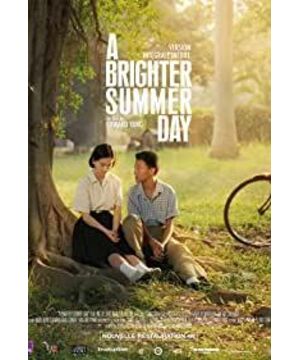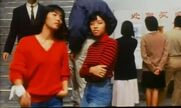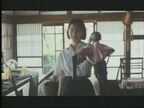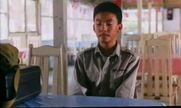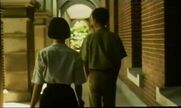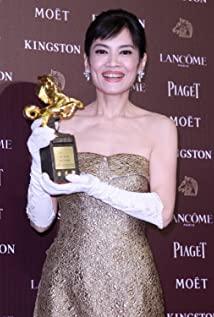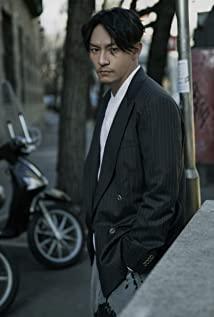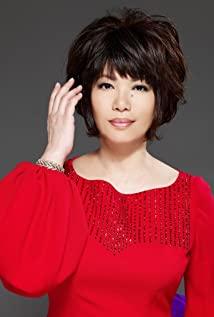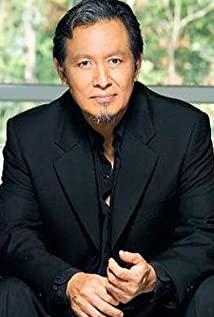The last time I felt so sad was probably in 2003. On April Fool's Day that year, Leslie Cheung made a huge joke with us with a shocking leap. After his gorgeous gestures, he left endless sadness; on the last day of that year, I heard the news of Mei Gu's death. , many years ago in "Rouge Buckle", "like a hook like a phantom moon, like a dream like a flower" actually became a prophecy of the peerless youth.
However, I didn't expect this to be just the beginning. Huang Zhan in 2004, Uncle Pyu (Dong Pyu) and Uncle Shrimp (Guan Haishan) in 2006 left their hands one after another and shed tears in Hong Kong. Since then, many shots of the golden decade of Hong Kong film industry can only be searched in film and memory.
I didn't expect it to be Yang Dechang's turn.
I have known the name Yang Dechang for a long time, probably in my college days. At that time, I hadn't come down from the bedside full of books and didn't fall in love with the movie world, even though I watched many classic films slowly; however, I often saw Yang Dechang's name in many places, accompanied by He appeared the most in the film "Guling Street Teenage Murder" that shocked me. Not long after I started to like movies, Yang Dechang won the Best Director Award at Cannes ("Yi Yi"), which also increased his weight in my heart for the first time. But at that time I couldn't find these films to watch, so I didn't appreciate his style.
Later, my understanding of him became even more special, just because it had nothing to do with movies or Cai Qin. I learned his unknown side from a girl. I listened to her description from the phone at that time. Although I couldn't and never saw it with my own eyes, I could fully feel the flash animation and text. Warm, humorous and even cute side, let people move.
Only after that are the movies, the seven and a half films that belong to Yang Dechang, and only then can we really come into contact with Yang Dechang's criticism of this society and his concern for human nature.
In the summer of 2003, I started my frenzied journey of collecting discs, and it got out of hand. In the first month or two, I accidentally came across a collection of short films called "Stories of Time". This film can be said to be the beginning of the new wave of Taiwanese movies. It consists of four short films, "Little Dragon Head", "Hope", "Leap Frog" and "Sign Up". The directors are Tao Dechen, Yang Dechang, Ke Yizheng and Zhang Yi. The four short films tell their growth stories in the four jumping stages of life, elementary school, middle school, university, and society in turn, leaving their own memories for the past. Among them, "Hope" directed by Yang Dechang focuses on the growth of adolescent girls. The story is inevitably a bit cliché, but the pictures and emotions have already made people see the director's skills. Especially at the end of the story, what the short man with bicycle glasses said to Xiaofen after learning to ride, "I have been eager to learn to ride, I thought that after I learned, I would go wherever I like, and now I can ride. I don't know where to go anymore." The taste of youth, but that's it.
However, the taste of youth is still so cruel. It was still that summer, A brighter summer day, and I found the DVD of "Guling Street Teenage Murder". Although the version, picture and sound quality are all average, it looks like the one that has not been repaired, but it is still shocking to say nothing on the night after returning home, after the record four hours.
Maybe I can never forget Xiao Ming's words, "It turns out that you are like them, and you are good to me and want to change me. You are so ridiculous, who do you think you are, I am like this world, and it cannot be changed... ..." I can't even forget the stab at Xiao Ming by the desperate Xiao Si. The cold hysteria seemed to tear open a veiled sky, revealing the setting sun like blood; I also can't forget the tape of Elvis Presley. The moment when he was thrown into the trash can by the prison administrators... The indifferent reality, the cruel youth, the helpless despair, and the meager ideal, all have only this sad ending. To be honest, such a movie viewing experience is absolutely unprecedented. The same cruel youth was also felt later when I watched Shunji Iwai's "All About Lily Zhou", but it was far less depressing than Yang Dechang. This movie has also become my favorite and the most unforgettable of all Yang Dechang's works; it was from then on that I began to really like him.
So I searched around, and successively received three relatively new works, namely "Independence Times", "Mahjong" and "Yiyi". It wasn't until last year that I came across "The Terrorist", and I was overjoyed. So far, I have kept five of the seven and a half books, and only the earlier "Childhood Friends" and "A Day at the Beach" are left. Later, I checked on the Internet, and it seems that these two films have never released audio-visual products. It is estimated that they will not be seen on the market for a while. However, the DVD disc market has always had a tradition of commemorating the master, so we will see if any disc dealers will take this opportunity to commemorate Yang Dechang, the real master.
In all fairness, Yang Dechang's stylized film narrative and spirit have matured in these later works, especially since "The Age of Independence", Yang Dechang gradually gave up the themes of youth and growth that he was familiar with in his early years, and made his film shots such as It cut into the wider society like a scalpel, entered the hearts of each living person, and tore off the disguise on everyone's face through personalized language. In front of Yang Dechang's camera, the hypocrisy and lies in this society, together with the complexity and gloom of human nature, have become his most focused criticism; and his control of the film group has also made him an insurmountable leader in the Chinese film industry. peak. In particular, the success of "Yiyi" in Cannes is a testament to his insistence on independent production over the years.
However, no one would have thought that after he won the highest personal honor with "Yiyi" in 2000, Yang Dechang would have no new works. Instead, he showed us his unknown side in Miluku's series of animations. Later, I heard that he was planning an animated feature film "Chasing the Wind", and I looked forward to it even more, but it turned out to be an unfinished work, which is regrettable.
But Yang Dechang is Yang Dechang after all. Even if only these works come out, he is still an unsurpassed master in the Chinese film industry, just like Tarkovsky, who also has only seven and a half films, will always be a monument in film history. The difference is that Mr. Ta is a movie poet, and carving time is his interest; while Yang Dechang is a doctor who walks the rivers and lakes and hangs the pot to help the world, and the camera is his scalpel.
View more about A Brighter Summer Day reviews


